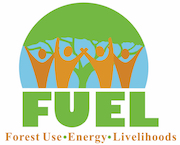Energy poverty is a lack of access to electricity and reliance on biomass fuels (e.g., fuelwood, charcoal, dung, crop residues) for cooking, heating, lighting, small-scale business and industry. Energy poverty has massive implications for climate, environment, human health and well-being. Over half of the global population is dependent on woody biomass as their main source of fuel. This theme focuses on evaluating strategies for mitigating energy poverty including promoting improved cookstoves, tree planting, and diffusion of micro-grid systems.
Related Projects:
- PIRE: Confronting Energy Poverty: Building an Interdisciplinary Evidence Base, Network, and Capacity for Transformative Change
- CNH-L: Energy Transitions and Environmental Change in East and Southern Africa’s Coupled Human, Terrestrial, and Atmospheric Systems
- Rwanda Inyenyeri Cookstove and Fuel Pellet Impact Evaluation
- Malawi Forest and Livelihoods Survey (MFLS)
- Malawi Household Air Pollution and Tuberculosis Study
- Ghana Small-Scale Biomass Burning Industries (SSBBI) Study
- Searching for Clean Air and Sustainable Energy Transitions in Yangon
Related Peer Reviewed Publications and Briefs

